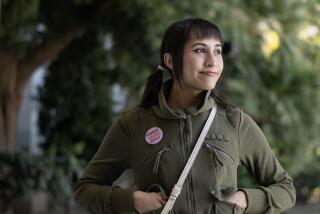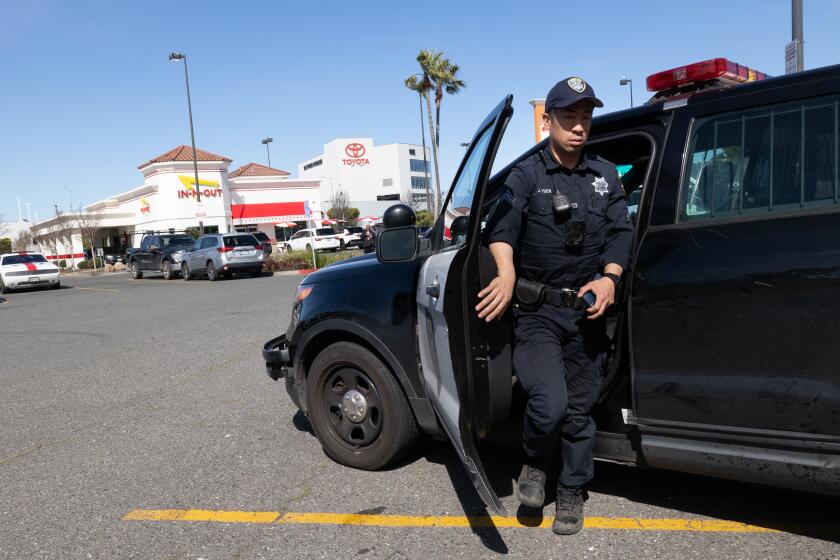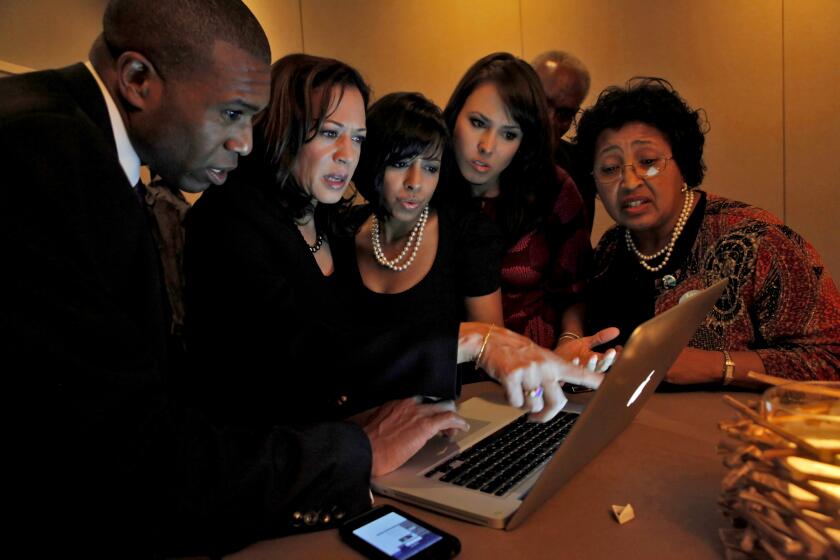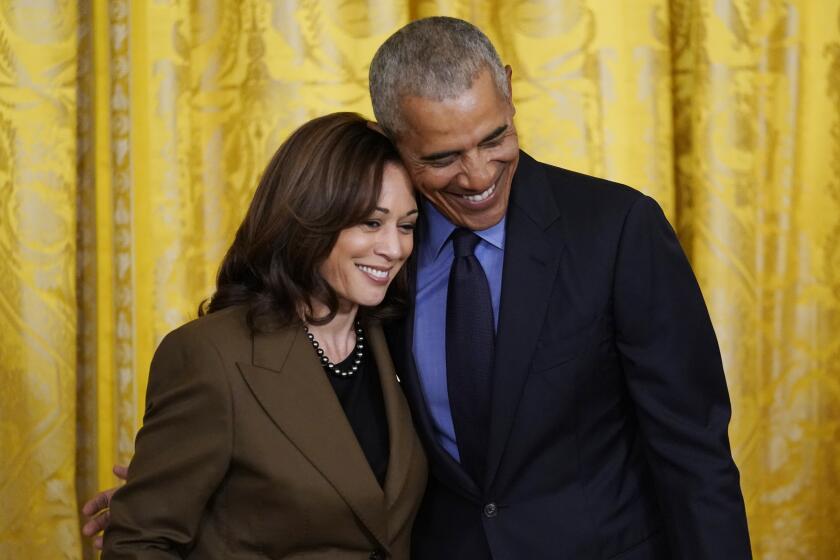Ill May Refuse Efforts to Save Life, Court Says : Law: Ruling in the case of a disabled prison inmate, state justices say adults may reject medical aid and food.
The California Supreme Court, ruling in the case of a quadriplegic prisoner who refused to eat or take medication, declared unanimously Monday that mentally competent adults have a “fundamental right” to refuse life-saving assistance.
The decision marks the first time the high court has ruled in a right-to-die case and establishes for the first time the right of prisoners to refuse lifesaving intervention in the absence of threats to prison security or public safety.
“After due deliberation,” wrote Justice Armand Arabian for the court, “we hold that under California law a competent, informed adult has a fundamental right of self-determination to refuse or demand the withdrawal of medical treatment of any form irrespective of the personal consequences.”
Lower courts previously have upheld a mentally competent individual’s right to die but not to have assistance in suicide. The state attorney general argued that allowing disabled inmate Howard Andrews, 30, to starve himself might be a form of assisted suicide because it would require the prison to show him “deliberate indifference.”
In rejecting the argument, the court distinguished between the case of a person suffering from a life-threatening disease or incurable injury who rejects aid and an individual who “deliberately sets in motion a course of events” aimed at his death and attempts to solicit help from others to achieve it.
The state had also argued that, unlike patients in previous right-to-die cases, Andrews was not suffering chronic pain or enduring “unending agony.” The court did not accept the distinction.
“For self-determination to have any meaning,” Arabian wrote, “it cannot be subject to the scrutiny of anyone else’s conscience or sensibilities. It is the individual who must live or die with the course of treatment chosen or rejected, not the state.
“Particularly when the restoration of normal health and vitality is impossible,” Arabian continued, “only the person whose moment-to-moment existence lies in the balance can resolve the difficult and uniquely subjective questions involved.”
Andrews was sentenced to 15 years to life in prison in 1990 for the stabbing death of a woman he worked for in Madera County. While incarcerated at Folsom Prison, he flung himself from the third tier of cells and was paralyzed from the neck down.
State authorities said Andrews, who is fed by spoon, refused food and medication intermittently over a six-week period while he was confined at the California Medical Facility at Vacaville.
Dr. Daniel Thor, a physician at Vacaville, became concerned after Andrews lost 39 pounds, and Thor went to court to obtain an order to force-feed the prisoner. Both a Solano County Superior Court and the 1st District Court of Appeal upheld Andrew’s right to refuse food and medication.
The doctor appealed, worried that if he imposed treatment he could be sued for battery and that if he withheld it he could be sued for wrongful death or prosecuted for aiding in a suicide.
Psychiatrists have found Andrews to be seriously depressed but mentally competent. While reviewing his case, the high court extended a temporary order allowing prison officials to force-feed and medicate Andrews pending resolution of the legal questions.
Andrews, faced with the prospect of forced assistance, has been accepting food and medication.
Steven Fama, Andrews’ attorney, said Monday he had not informed his client of the court ruling and did not know whether Andrews would renew his hunger strike.
“The only thing I know is that he will now have the right to decide that for himself,” Fama said.
State Deputy Atty. Gen. George Prince, who represented Thor, said he was not disappointed with the court’s ruling.
“What we wanted was just some guidance from the court, one way or another,” Prince said. “It was a precarious situation before.”
Thor could not be reached for comment. But Prince described him as “happy that there is some resolution now.”
“His concern before was that doctors did not know what to do--that they would be damned if they treated and damned if they didn’t,” Prince said.
The court said that doctors must advise patients making a voluntary and informed decision to die, but that the patient’s choice must be respected regardless of the doctor’s judgment.
The California Medical Assn., which represents 35,000 physicians, had sought a broad ruling upholding an individual’s right to die.
Alice Mead, legal counsel for the medical association, expressed concern with what she called a “shade of gray” in the opinion over whether the court would uphold a healthy inmate’s right to die.
“It is unclear what would have happened if he didn’t have any unwanted medical condition and just wanted to die,” Mead said. “I think that is left a little open by the court, particularly in the case of an inmate.”
Although Mead was generally pleased that the high court had affirmed the right to die for most adults, she was disappointed that the court did not recommend a procedure for ensuring that an inmate’s decision to die is voluntary. Such a procedure could include therapy and psychiatric evaluation, she said.
A figure in another major right-to-die case, Elizabeth Bouvia, a paralyzed California woman who wanted to starve herself to death while under hospital care, won the right to refuse treatment under a 1986 state appeal court ruling. She said in an interview two years later that she still wanted to end her life but had decided it was not the right time. She is still living.
The state had argued that the Bouvia case differed significantly from that of Andrews for a variety of reasons. Andrews, the state argued, was merely seeking relief from the prospect of a long prison sentence.
More to Read
Sign up for Essential California
The most important California stories and recommendations in your inbox every morning.
You may occasionally receive promotional content from the Los Angeles Times.







